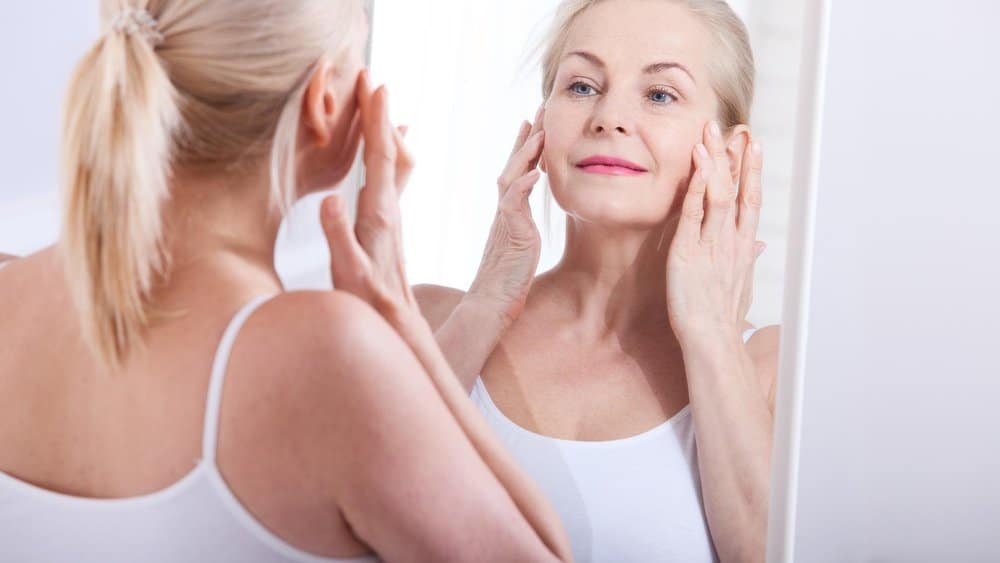Understanding menopause
Menopause is a natural phase in a woman’s life, marking the end of menstrual cycles and changes to hormones in the body.
However, the transition can bring about a range of physical and emotional symptoms that can impact daily life. Understanding what menopause is, when it happens and how to manage its symptoms can help women navigate this phase more comfortably.
Here’s what you need to know to help you understand the changes that menopause brings with it.
What is menopause?
Menopause is a natural biological process signifying the end of a woman’s reproductive years. It is officially diagnosed after 12 consecutive months without a menstrual period.
It isn’t an abrupt event but a gradual transition that occurs in stages, sometimes years before the menopause officially happens. Here are the stages of menopause that you need to know about:
- Perimenopause – this stage can begin several years before menopause as the ovaries gradually produce less oestrogen. It is characterised by irregular menstrual cycles and the onset of menopausal symptoms.
- Menopause: This is the point at which a woman has not had a menstrual period for 12 consecutive months. The ovaries have ceased releasing eggs, and there is a big decline in oestrogen production.
- Postmenopause: This stage follows menopause and continues for the rest of a woman’s life. While menopausal symptoms may ease for many women, the decline in oestrogen can increase the risk of some health conditions.
When does menopause happen?
Menopause typically occurs between the ages of 45 and 55, with the average age being around 51. However, the onset can vary widely due to factors like genetics, health, lifestyle and medical conditions or treatments.
Family history can play a big part in determining the age at which menopause begins. Lifestyle factors like smoking can lead to early menopause, while a healthy lifestyle with a balanced diet and regular exercise might delay it.
Some medical treatments, like chemotherapy or surgery to remove the ovaries, can induce menopause prematurely. This is sometimes treated with hormone replacement therapy to reduce menopausal symptoms.
Symptoms of menopause
Menopause can bring about a variety of symptoms, which can range in severity and impact on daily life. Common symptoms include:
- Hot flushes – sudden feelings of warmth, often accompanied by sweating and a red, flushed face.
- Night sweats – these are hot flushes that happen when you’re asleep. This can disturb your sleep and leave you feeling tired.
- Irregular periods – menstrual cycles may become less predictable before they stop all together.
- Vaginal dryness – reduced oestrogen levels can lead to vaginal dryness and discomfort.
- Mood Swings – hormonal changes can cause irritability, depression and anxiety.
- Weight gain and slowed metabolism – changes in body composition and metabolism.
- Hair thinning and loss – decreased oestrogen levels can lead to changes in hair texture and density.
- Joint pain – some women experience increased joint and muscle pain.
- Dry skin – lower oestrogen levels can lead to reduced skin elasticity and dryness.
Managing your menopausal symptoms
Managing menopausal symptoms involves a combination of lifestyle changes, medical treatments, natural remedies and psychological support. If you’re experiencing menopausal symptoms, speaking to your doctor is a good idea to check in.
Lifestyle changes
Lifestyle changes can make a huge difference to how you feel during the menopause. A balanced diet that’s rich in fruits, vegetables, whole grains and lean proteins can help to manage things like weight and your health. Staying hydrated and limiting caffeine and alcohol can reduce the severity of hot flushes and help with sleep quality.
When oestrogen levels drop during menopause, it affects the skin, bones and joints, leading to dryness, wrinkles and weaker bones. Since collagen is a key protein that supports these areas, taking a collagen supplement, such as Yuvãfy can help replenish what’s lost during menopause. This can lead to firmer, more hydrated skin, fewer wrinkles, and an overall more youthful appearance.
Beyond skin benefits, collagen supplements are great for bone health too. Menopause often brings an increased risk of osteoporosis and joint pain. Collagen helps maintain strong bones and healthy joints, and some studies show it can reduce joint pain and improve mobility. By supporting both your skin and bones, collagen supplements can help you feel better and stay active during menopause.
Getting regular exercise can help with symptoms of menopause. Exercise like walking, swimming and cycling can boost cardiovascular health and help to maintain a healthy weight. Strength training can help with muscle mass and bone density, while yoga and mindfulness can reduce stress and improve your mood. A regular sleep routine can help too.
Medical treatments
If you feel that you need medical support or advice during menopause, you should always speak to your doctor. They can advise on hormone replacement therapy (HRT), non-hormonal medications and any other supplements that might help you during menopause, whatever stage you’re at.
They can also help with referrals for counselling, therapy or support groups during menopause. Menopause can affect your mental health, so a healthy, open environment can help you to deal with your physical and emotional symptoms.
Navigating the menopause
The menopause can come with challenges, from health to emotions and life. It’s important to remember that each woman’s experience is unique, and finding the right combination of lifestyle changes, medical treatments and support is key to managing menopausal symptoms effectively.
Taking care of your body at every stage is important. Discover Yuvãfy and find out how it can support your wellness during the menopause.



